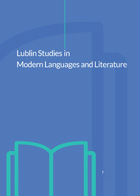A génese das línguas crioulas (hipótese universalista)
On the origin of Creole languages - the universalist hypothesis
Author(s): Barbara Hlibowicka-WęglarzSubject(s): Language and Literature Studies
Published by: Wydawnictwo Naukowe Uniwersytetu Marii Curie-Sklodowskiej
Keywords: Creole languages; universal theory
Summary/Abstract: There are many hypotheses and theories about the origin of Creole languages. Most of them were developed in XX century. According to some of the theories all Creole languages have a common origin and come from a so called protolanguage, which comes from the XV century and has been developed along the west coast of Africa (monogenesis). Others claim that Creole languages have been developed due to the contact and mix of many languages (polygenesis). The aim of the article presented below is to outline one of many different theories of the origin of Creole languages, the so called universal theory. According to this theory Creole languages – like other natural languages, although they were formed under specific conditions – arose because of a biological program which is embedded in our minds and which is genetically passed over from generation to generation.
Journal: Lublin Studies in Modern Languages and Literature
- Issue Year: 29/2006
- Issue No: 29/30
- Page Range: 148-156
- Page Count: 9
- Language: Portuguese

